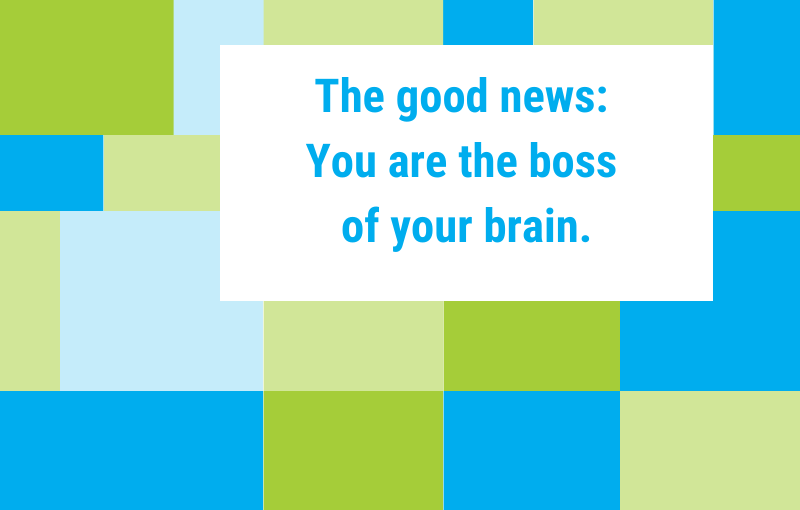The good news is that we are the boss of our brain.
We are responsible – and capable! – of paying close attention to what’s happening in our brain.
We can – and should! – take the leadership.
It’s our job to supervise the survival manager and the growth manager (read more here) and make them cooperate in ways that allow us to survive and to grow.
As we are now aware of the main interests of the survival manager – seeking pleasure, avoiding pain, and saving energy – we can decide to actively support the growth manager and take the lead in the discussions with the survival manager.
The best growth strategy is to pursue new goals and change-intentions in ways that help loosen the survival manager’s automatic resistance:
-
- Powerful thoughts and feelings
We deliberately choose and practice empowering thoughts about our plans which help us create powerful feelings. The survival manager’s automatic resistance thoughts lose their power and influence.
-
- Easy-to-do actions and behaviours
We plan our actions carefully and make sure that the new behaviours are tiny and easy to do, so that our survival manager can accept them as risk- and pain-free alternatives to current actions/behaviours.
-
- Small start and fast results
We then start doing the new small things, so that we can create early success experiences and evidence for the survival manager that we indeed can do this.
-
- Habit creation
We practice the small and easy behaviours – we do them repeatedly and consistently – and continue to create daily success stories, no matter how little they are. Soon, our survival manager will start to consider the now no longer new behaviours as potentially ‘survival-suitable’ behaviours.
-
- Mind-management
And whenever the survival manager is tempted to bring up any worry-thoughts or feelings of fear and doubt, we carefully redirect our attention to our positive thoughts and to the results that we have already created with our initial actions.
After lots of practice and repetitions of the new behaviours, our survival manager will drop its resistance completely and accept the new ways of doing things as the right ways of doing things.
At that point, the survival manager – who wants us to function efficiently and save energy wherever possible – will make the behaviour unconscious and automatic – which will make it a deeply ingrained habit.

